Donning a pair of green hiking shoes, Genevieve Slaton –– a student at the University of Oregon and a co-director of the Native American Student Union –– loaded into a van with 10 other students of color at the Outdoor Program Rental Barn in November 2021. Slaton and her classmates journeyed along Oregon Route 126 to the Blue Pool trailhead in McKenzie Bridge, Oregon. Here, they hiked through a landscape decorated with moss, trees and ethereal light to an “absolutely beautiful” body of turquoise water.
The Outdoor Program hosted this hike in partnership with the UO Multicultural Center as a part of their Redefining Outdoorsy initiative. Slaton says the outing was an amazing experience because it allowed her to go outdoors with other people of color –– something she had not experienced before coming to college.
While the outdoors was accessible to her growing up, Slaton says she rarely saw people who looked like her engaging in outdoor activities.
“I didn’t realize how much I missed out and how much I needed that sense of community back then,” she says. “Back then, being surrounded by white people was all I knew.”
Slaton’s prior experience of the outdoors as a predominantly white space reflects a larger trend across the U.S. According to a study by the Outdoor Foundation, white people are overrepresented in the outdoors, making up 71.5% of outdoor participants in the U.S. despite being only 60.9% of the U.S. population.
But the Outdoor Program at the UO is making the outdoors a more inclusive, accessible and equitable space through the initiative “Redefining Outdoorsy.” The initiative began in 2020 and featured a series of speakers to amplify the voices of underrepresented communities in the outdoors.
This year, the Outdoor Program expanded Redefining Outdoorsy by hosting a conference during winter term and fundraising more than $20,000 to host fully-funded affinity trips –– similar to the outing Slaton participated in at Blue Pool. Affinity trips are hosted in partnership with student organizations. They are only open to students with a specific identity to help underrepresented groups get outside in a safe and inclusive environment free from financial barriers.
Slaton says Redefining Outdoorsy makes the outdoors more accessible for her because it provides a space to engage in outdoor recreation with people who look like her. Before the Blue Pool outing, she says, she had never been on a hike with so many other people of color.
Slaton says she loves nature as an Indigenous person, yet Indigenous people “haven’t really had something” offered to them through the Outdoor Program until now. She says she noticed Outdoor Program outings were not as diverse before the initiative began.
Outdoor spaces lack diversity, but UO Professor of English and Environmental Studies Sarah D. Wald says stories of BIPOC in the outdoors often go untold.
“There are really wonderful stories out there of heroes of outdoor recreation and heroes of conservation who are BIPOC leaders,” she says. “But we don’t tell those stories, and that then reinforces this idea of what scholars have called a ‘racialized outdoor leisure identity.’”
According to Wald, outdoor leisure has been racialized due to the overrepresentation of white people in the outdoors.
While stories of BIPOC in the outdoors often go untold, Wald says that doesn’t negate the fact that outdoor recreation is still inaccessible for many people with marginalized identities. The outdoors is inaccessible due to the history of public lands, where most outdoor recreation takes place.
“When we’re talking about racial justice and outdoor recreation –– or other forms of exclusion around gender, around sexuality, around ability –– there’s a long history of how public lands were created, who public lands were created for, how people have used them, how people have thought to use them,” Wald says. “So there’s a lot of exclusionary histories both ideologically and materially that have shaped why the land is welcoming for some and not for others.”
According to the Center for American Progress, the creation of public lands relied on the genocide of Indigenous people. The U.S. stole lands from Native nations during the 18th and 19th centuries and designated these lands as spaces for white leisure, according to Wald, which continues to influence who feels comfortable on them.
But Redefining Outdoorsy, led by student leaders like Matthew Katz ––the collaborative programming coordinator at the Outdoor Program –– seeks to make the outdoors a much more inclusive environment.
Katz says becoming involved in the Outdoor Program helped him improve as a person and provided opportunities to explore the outdoors and connect with others. He wants everyone to experience these benefits.
While Katz says he was fortunate not to experience many barriers to the outdoors growing up, little knowledge and limited queer representation prevented him from accessing outdoor recreation more easily.
“When I was younger, in the suburbs of the Midwest, there were not a lot of queer people talking about going outside,” he says. “I love my position because I see all these really cool people on Instagram, Facebook and Twitter doing all this really amazing advocacy work to show that yes, you can go outside being whatever identity you hold.”
Simon Scannell is the education coordinator for the UO LGBT Education and Support Services and has collaborated with the Outdoor Program to organize outings for LGBTQ+ students. In middle and high school, he experienced barriers to outdoor recreation due to limited time, distance from natural environments and gender dysphoria.
In college, the outdoors has become more accessible to Scannell because he can go outside with people who have similar identities and experiences.
“I used to do cross country in middle school, and then I stopped doing any exercise really, mostly because of dysphoria reasons,” he says. “It’s been nice to be specifically around other trans people and know that we just accept our bodies as they are. And it’s okay to just have our bodies be how they are.”
Scannell says many LGBTQ+ events at the UO are stationary and take place inside, so outdoor outings provide a unique space for community building. He says this community building is important because it allows LGBTQ+ students to connect over their experiences and interests.
Additionally, Katz says access to the outdoors is important because it can develop support for environmental issues like climate change by fostering a connection between people and nature. It is also beneficial for mental health, according to the American Psychological Association.
“I value being outdoors a lot because I feel very connected to nature. That’s the place where I feel most at peace,” Slaton says. “If my mental health is deteriorating, it means I need to go outside. It means I need to be around trees, grass, whatever, because that’s what makes me feel at home.”
Access to the outdoors for the benefit of mental health has only proven more important during the pandemic. According to the CDC, mental health issues have increased since the onset of the COVID-19 pandemic.
However, the pandemic –– as well as movements for racial justice –– has revealed and exacerbated existing inequities.
According to the Center for American Progress, movements for racial justice have demonstrated that many people of color in the U.S. do not have adequate access to the outdoors. Christian Cooper, who was threatened with having the police called on him while bird-watching in Central Park, and Ahmaud Arbery, who was murdered while jogging in a coastal Georgia neighborhood, are among numerous people of color who have experienced violence in the outdoors.
The Center for American Progress also reported that communities of color are three times more likely to live in “nature deprived” areas. Without sufficient access to nature, communities of color are more likely to develop immunocompromising illnesses, such as asthma, that increase their risk of COVID-19.
However, in addition to initiatives such as Redefining Outdoorsy, supporting tribal sovereignty and land back movements can promote equity in the outdoors, according to Wald.
“When we talk about the outdoors in the United States, we’re talking for the most part about stolen native land,” Wald says. “And I want us to think about what it means to recognize that land as native land and how that might change how we relate to that land and how we respect tribal sovereignty on that land.”
Settler colonialism in the U.S. has impacted public lands and ideas about what it means to be “outdoorsy,” according to Slaton.
To be outdoorsy, Slaton says people believe they must own outdoor gear and have elaborate plans to go outside, which makes outdoor recreation intimidating and inaccessible.
“I think that puts a lot of people off, especially people of color who don’t have access to all these things. And I don’t think they realize that being outdoors also just means taking a walk where there’s nature,” Slaton says. “You don’t really need all of these things and all of this gear to experience or just to be out in nature.”
While going outside doesn’t have to be expensive, the cost of outdoor recreation remains a barrier to access, according to Katz. He says the need for free time to engage in recreation — in addition to the cost of equipment, transportation and more — can present financial challenges because it requires time off of work.
According to Katz, knowledge barriers can also prevent people from accessing the outdoors. Knowledge about the outdoors is often passed down through family and community; therefore, it can be difficult to obtain awareness about outdoor recreation without these connections.
But the Outdoor Program provides resources –– such as affordable gear rentals, clinics and outings –– in addition to its Redefining Outdoorsy initiative to help students at the UO overcome these barriers.
“Redefining Outdoorsy makes the outdoors more accessible because you’re going on a trip with people who look like you and who identify as the same thing as you,” Slaton says. “It makes you feel more welcome. It makes it a lot more fun and exciting to meet new people that you share that common thing with.”


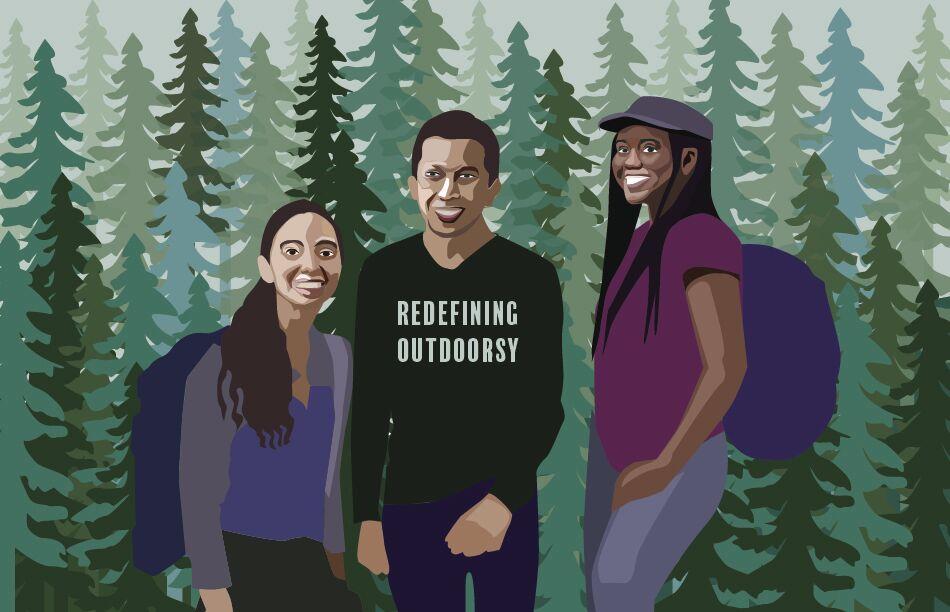
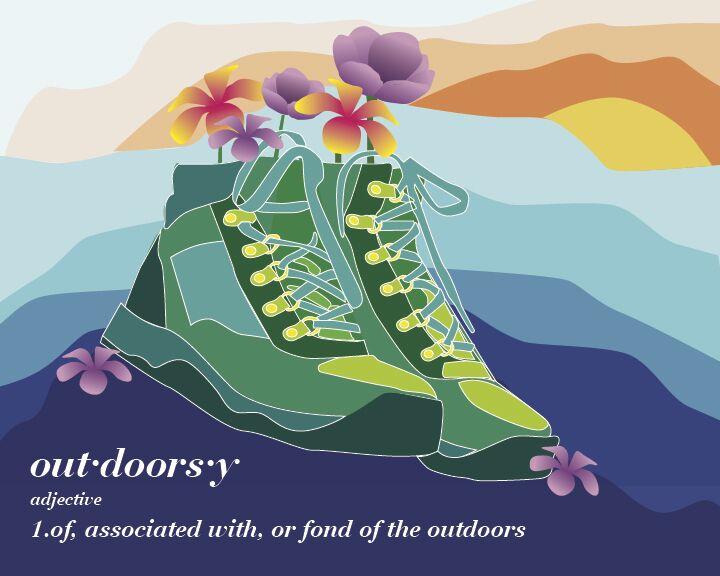
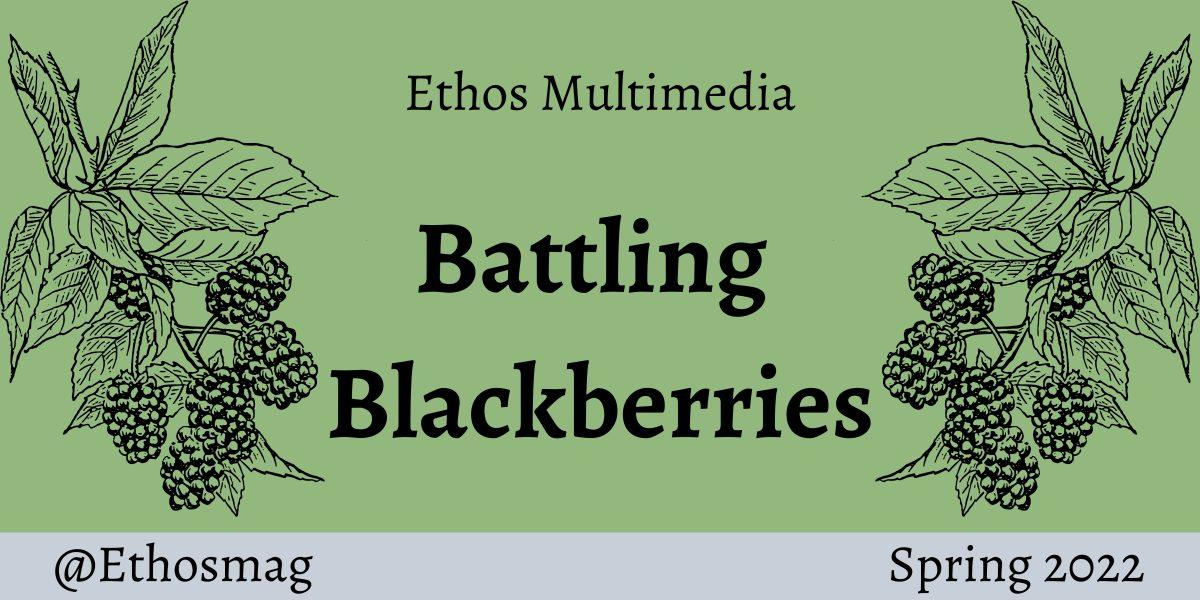

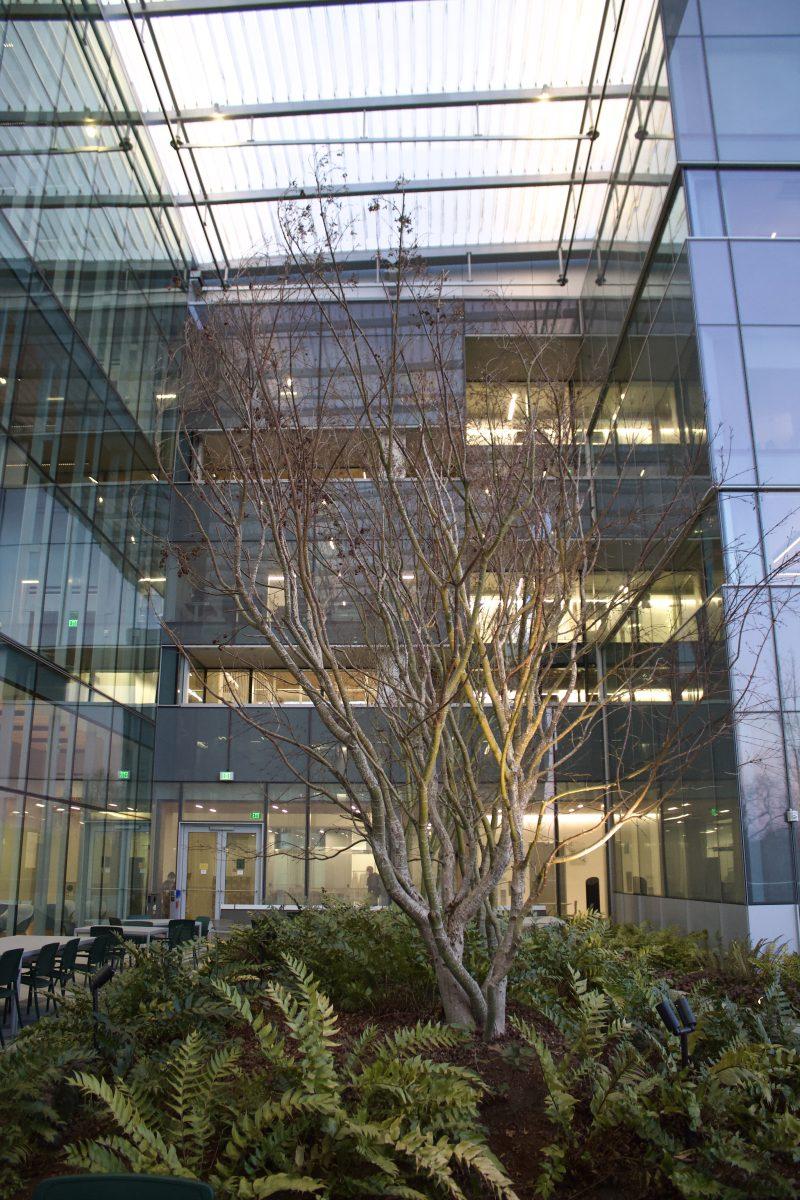
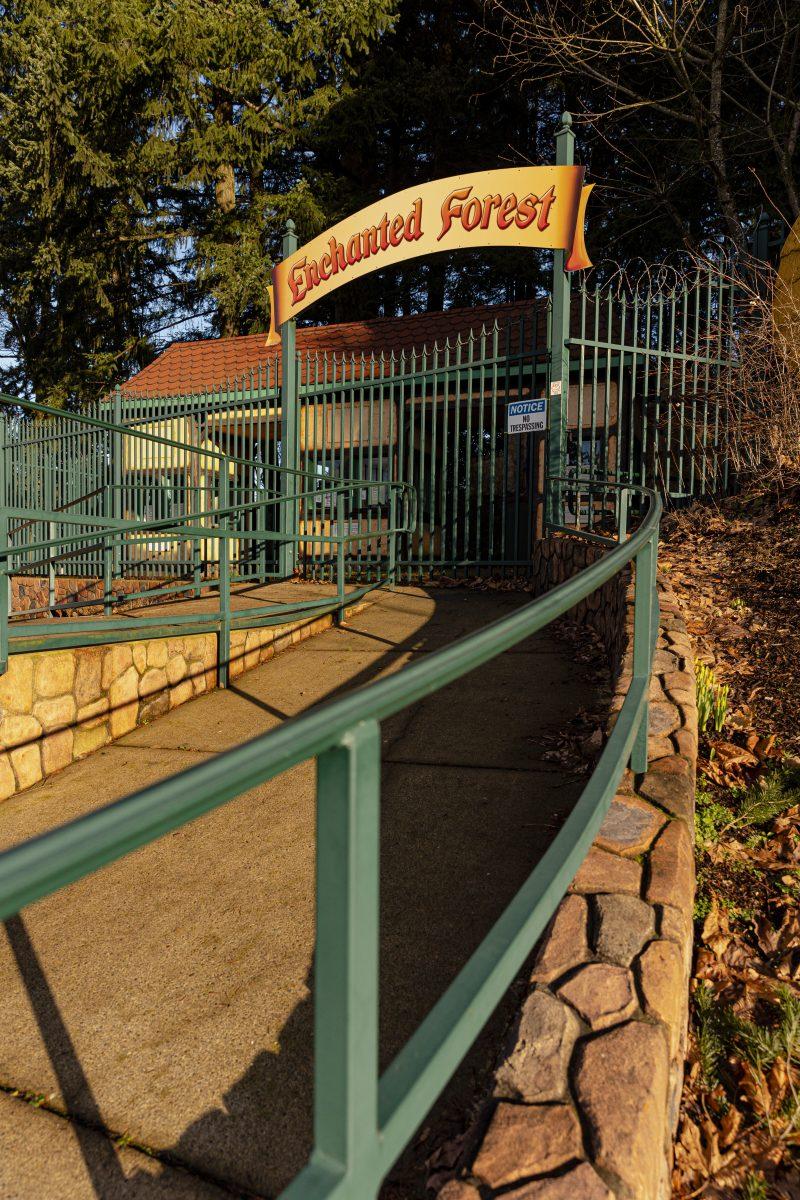
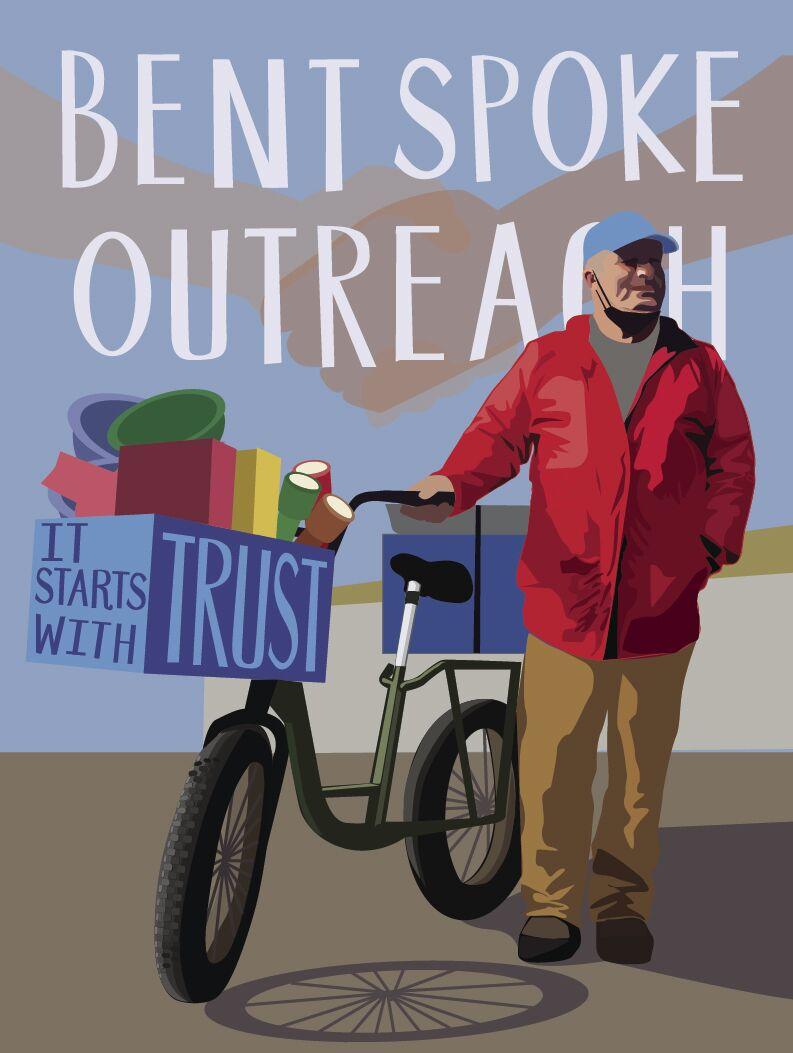
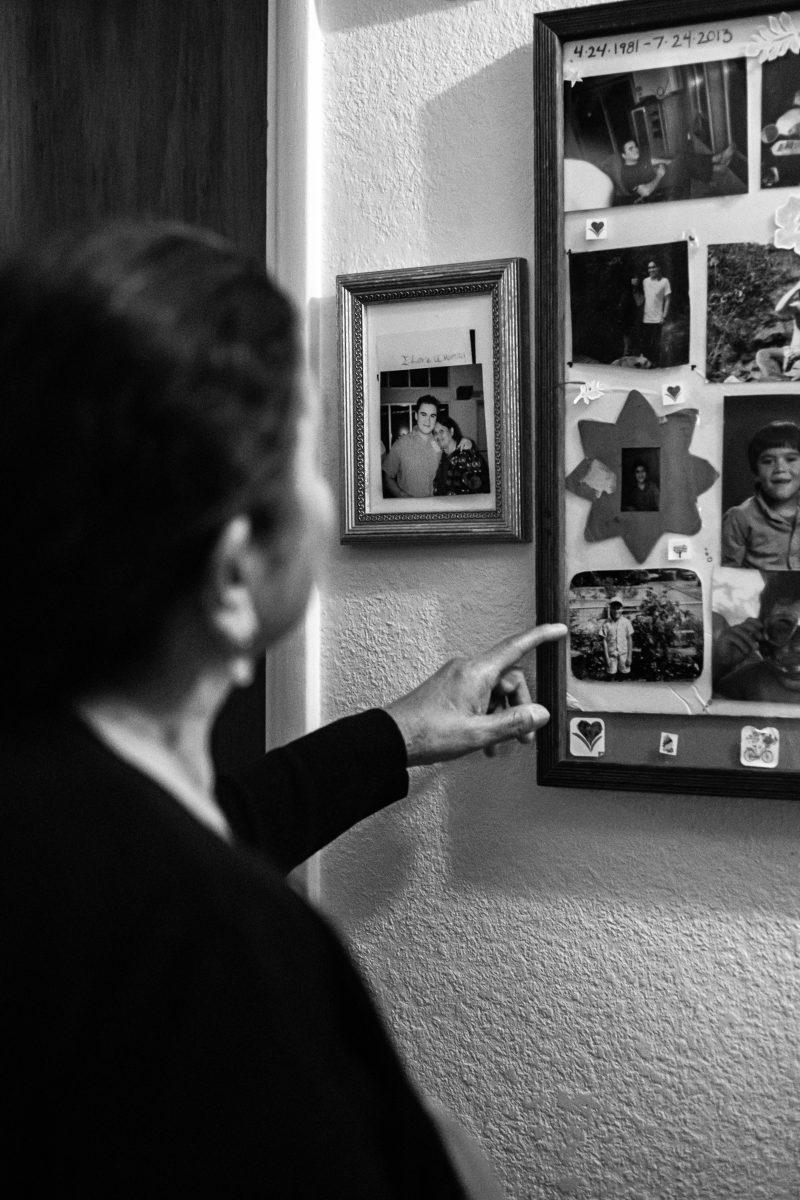


![[Photo Courtesy of the Lara Family]
Ruben embraces his beloved childhood goat, Katrina.](https://ethos.dailyemerald.com/wp-content/uploads/2025/05/katrina-1-1060x1200.jpg)


